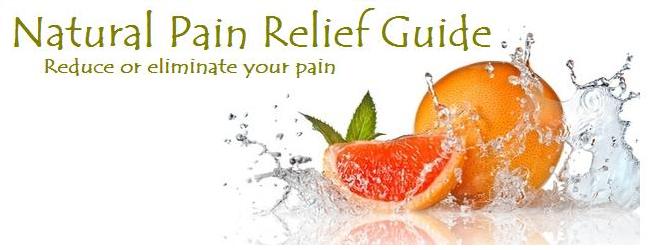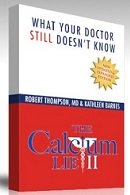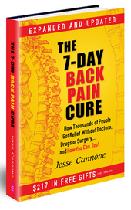|
Handwashing and other Preventive Measures
Handwashing is often mentioned as a flu preventive measure. You can read below why I think the simple directive to "wash your hands often" may be a problem. However, it may help to stop the spread of the swine flu virus.
 Swine flu warning: wash your
hands or you could end up
looking like this! Handwashing - When To Do It
Wash your hands before:
- handling or eating food or feeding others
- brushing or flossing teeth
- inserting or removing contact lenses
- after treating wounds or cuts
Wash your hands after:
- having any contact with a person who has influenza or his/her immediate environment
- going to the toilet or changing a diaper
- blowing your nose or wiping a child's nose
- coughing or sneezing
- handling garbage
- when returning home from a busy public place, such as a workplace or mall
- touching animals or anything that might have contacted animal waste
Children should also wash their hands after playing with toys used by children or after touching those children. That could be tricky!
Handwashing - How To Do It
- Wet your hands with warm, running water and apply liquid or clean bar soap enough to lather well.
- Rub your hands vigorously together for at least 15 to 20 seconds.
- Scrub all surfaces, including the backs of your hands, wrists, between your fingers and under your fingernails.
- Rinse well.
- Dry your hands with a clean or disposable towel.
- Use a towel to turn off the tap.
What Soap To Use
Antibacterial soaps have become more popular. However, they are no more effective at killing germs than regular soap. Remember, antibiotics are not effective against viruses anyway. The use of antibacterial soaps may lead to the development of bacteria that are more resistant to the antimicrobial agents in the soap, making it even harder to control these germs in the future.
Regular soap works fine. The action of scrubbing your hands with soap - antibacterial or not - and rinsing them well with water will remove germs from your hands.
Alcohol-based hand sanitizers will also work but remember some of that alcohol will be absorbed through your skin. Only use when necessary and when you can't wash your hands.
Handwashing - Too Simplified?
Here is why I believe the simple directive "wash your hands" often is not well-used:
To illustrate with an example. I know of a woman who drove a school bus who once said that after the light turned green she would always count to three before starting the bus across the intersection. Nothing wrong with that but in my way of thinking the important thing is that it is safe to cross - like no other driver running a red light. What if some careless driver goes through after four seconds? I wouldn't feel right telling someone count to three when the light turns green and then you can drive the school bus across the intersection. Rather, make sure it is safe, then cross. If it is clear as soon as the light turns then go.
The point of handwashing when we are talking about flu avoidance isn't simply to have clean hands. The flu virus is not absorbed through the skin. The point is that it is absorbed through moist mucus membranes such as are in the mouth, nose, eyes and possibly the ears. These are places we often touch without thinking. We need to understand the mechanism of transmission and not be touching these vulnerable parts. I just think that if this was emphasized more there would be better care about moving the virus to the very areas where they can enter our bodies.
But even then we misunderstand our bodies' defence mechanism. If we have a strong immune system and are generally healthy, the flu is not a big threat.
Having said that, of course we should all practise regular handwashing - because we are vulnerable. And, because we are vulnerable, we should practise good hygiene,
build up our immune systems
and take other measures to protect ourselves and those around us. Let's look at some other things we can do.
Other Preventive Measures
- Avoid travelling to areas where the swine flu is more common if you don't need to.
- Stay away from public areas if it is not necessary to be there. Germs from coughs and sneezes can shoot out at up to 80 miles per hour and quickly travel several feet. Then they can survive outside of a body on various surfaces for up to two days.
- Do not touch surfaces that others might have touched any more than necessary. This can be less of a concern outside where the swine flu virus will not live long in fresh air and sunlight.
- A bottle of alcohol-based hand sanitizer is often recommended although try to minimize its use as some will be absorbed through the skin.
- Masks can be used if you are in a highly-infectious situation such as caring for someone who already has the swine flu.
- Something I learned long ago from an old doctor who commented as he observed a young girl rubbing her eyes with the back of her hand - as much as you can touch your face (when you need to) with the back of your hand. You can't always do that. But try to follow this: touch others with the front of your fingers or palm and yourself with the knuckles or back of your hand. Your less likely to infect yourself with whatever is going around.
|
Keep up to date with
valuable insights into
pain management via
a healthy lifestyle.
Receive the monthly
Natural Pain Relief
Guide Newsletter.
News articles, health
tips, specials, freebies.
Enter your email and name
in the form to the right.
|
|
|









New! Comments
Have your say about what you just read! Leave me a comment in the box below.